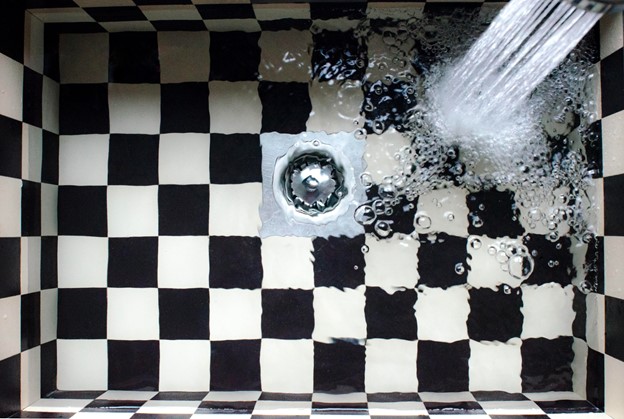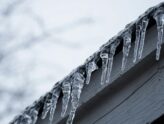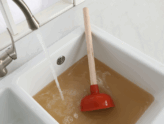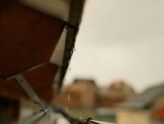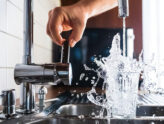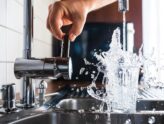Are Chemical Drain Cleaners Safe?
Most residential drains are cleaned using chemical drain cleaners, but not every chemical drain cleaner is safe for pipes. To take better care of your plumbing, you should be aware of the potential problems of chemical drain cleaners and what alternatives can be used.
Many residential drains are cleaned using chemical drain cleaners, but too many such cleaners contain caustic chemicals. These harsh products can damage pipes over time by corroding or eroding them. Most chemical drain cleaners are often unintentionally dangerous around children and pets and are not environmentally friendly.
Many plumbers and home maintenance professionals recommend avoiding chemical drain cleaners and using something less toxic. While many chemical drain cleaners are on the market, their effects may not be worth the risk for occasional use, and safer, more effective alternatives exist.
Ineffective
Cleaners work well on soap and grease clogs, but other clogs are difficult to remove with most chemical drain cleaners. There are other causes of clogs besides the accumulation of food or hair.
Other items that can accumulate in your pipes are fibrous food, eggshells, and non-food items such as cotton swabs or dental floss. Grease and oil are also found in cooking and washing, and because these materials don’t break down, they also contribute to a clog in garbage disposal drains over time.
Pipe Damage
The belief that chemical cleaners are strong enough to clean pipes, drains, and other plumbing fixtures is widespread, but in most cases, they are not. Chemical drain cleaners can damage or erode the seals and gaskets, and residue left behind can clog filters.
However, the chemical can do more harm than good. This is because chemical cleaners tend to eat away at the clog rather than dissolve it. Unfortunately, this only wears away the pipe and can actually cause the line to leak.
Dangerous
Sometimes after trying one chemical drain cleaner and having it not work, homeowners have no choice but to try another. But it might not be a good idea to switch it up too often.
Mixing bleach with ammonia is a terrible idea. The two chemicals react violently to produce toxic fumes. Moreover, the fumes are deadly in high concentrations, even in minimal amounts.
Mixing drain cleaners can be dangerous, as this also creates the potential for harmful gas or chemical-laced water to spray out of the drain. Mixing also increases the chance of drain cleaner getting on your hands and your eyes.
Even without mixing, drain cleaners often have fumes that can cause respiratory issues in pets and children.
Environmentally Unfriendly
There are negative long-term effects of chemical solutions like Drano, including aquatic toxicity and bacterial destruction. PH levels of nearby water sources will be changed once chemical cleaners have left your system and entered the surrounding waters. Ingesting this before dilution will cause tissue damage and death in wildlife. In addition, it affects development, the endocrine system, and the reproductive system.
Air pollution can even be caused by drain cleaners. Using these products more frequently causes pollution to worsen. You can make your home’s indoor air quality worse by using liquid drain cleaner due to the fumes.
Alternatives to Chemical Drain Cleaners
The best alternative to chemical drain cleaners is, of course, prevention.
● Avoid pouring grease down your sink.
● Avoid flushing anything but human waste and toilet paper.
● Avoid pouring cooking oils, fats, or grease down your drains.
● Avoid pouring paint, solvents, or other chemicals down your drains. And, of course,
● Use strainers to catch food and other potential clogs.
Safe Drain Cleaners and Ways To Clear A Clogged Drain
Chemical drain cleaners are harsh, abrasive, and even flammable. They can damage pipes, septic tanks, and the environment. There are lots of safer, less damaging, and more effective options.
In spite of their simplicity, dish soap and hot water are extremely effective. A solution of hot water with a few tablespoons of dish soap, poured down the drain and rinsed out, can be used to dislodge grease-induced clogs and provide a thorough disposal cleaning.
It is easy to find borax, also known as sodium tetraborate, in most grocery stores. Vinegar is also an effective cleaner. When you combine a fourth cup of borax, vinegar, and salt together, you will get a terrific flush that will get rid of clogs in your plumbing system. The ingredients can simply be poured down the drain and rinsed with hot water.
Baking soda is the cheapest and safest way to remove clogs. Mix 1 cup baking soda in 1 gallon of hot water. Pour the mixture down the clogged drain. The baking soda will react with the water to form a foam. The foam will trap the clog and absorb it, then slowly dissolve it. Run the water for 5 minutes. If the clog is stubborn, repeat the process.
An experienced plumber will be able to use a professional drain snake, if necessary for tough clogs. However, if you are able to straighten out a wire coat hanger, you can construct your own makeshift drain snake. Most drain blockages will be cleared up by applying this method, which may not eliminate tough obstructions entirely.
Plungers come in all shapes, sizes, and materials. For most clogs, however, a flange plunger is your best bet; it has a special, round, curved end that fits perfectly into the drain opening. It’s best to use a flange plunger to remove clogs in toilets
But not all clogs are alike, and if you want to avoid more costly repairs in the future, and protect the condition of your plumbing, you should call Caldwell Plumbing for experienced, licensed plumbers in Pickering.
Do You Have A Clogged Drain? Call Our Experienced Plumbers in Pickering
At Caldwell Plumbing, we specialize in residential and commercial plumbing services, including drain cleaning and snaking. We service the greater Pickering, and Durham Region of Southern Ontario. We also offer 24/7 emergency service for after-hours calls. Contact us today for a free estimate!

